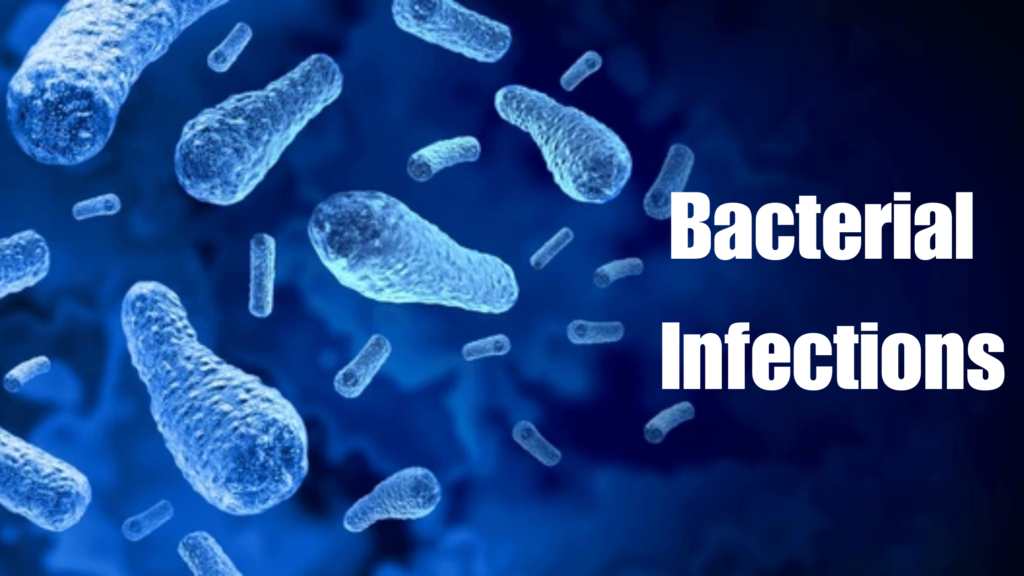🦠 What Are Bacterial Infections?
Bacterial infections occur when harmful bacteria invade the body, multiply, and cause illness. While many bacteria are harmless or beneficial, pathogenic bacteria can lead to various diseases.
🧬 Common Bacterial Infections
Here are some prevalent bacterial infections:
- Streptococcal Infections: Caused by Streptococcus bacteria, leading to conditions like strep throat and scarlet fever.
- Tuberculosis (TB): A serious lung infection caused by Mycobacterium tuberculosis.
- Salmonella: Bacteria causing food poisoning, leading to symptoms like diarrhea and abdominal cramps.
- Urinary Tract Infections (UTIs): Infections affecting the urinary system, commonly caused by Escherichia coli (E. coli).
- Staphylococcus aureus: Can lead to skin infections, pneumonia, and bloodstream infections.
⚠️ Symptoms of Bacterial Infections
Symptoms can vary based on the infection site but commonly include:
- Fever: A common response to infection.
- Fatigue: Feeling unusually tired or weak.
- Swollen Lymph Nodes: Particularly in the neck, armpits, or groin.
- Pain or Redness: At the infection site.
- Cough or Sore Throat: Especially with respiratory infections.
- Diarrhea or Vomiting: Common in gastrointestinal infections.
- Skin Rash or Sores: May indicate a skin infection.
If you experience severe symptoms like high fever, difficulty breathing, or confusion, seek medical attention promptly.
💊 Treatment Options
Antibiotics are the primary treatment for bacterial infections. However, it’s crucial to use them responsibly to prevent antibiotic resistance.health.com+1medlineplus.gov+1
- Antibiotics: Prescribed based on the specific bacteria causing the infection.health.com+1health.com+1
- Supportive Care: Includes rest, hydration, and over-the-counter medications to alleviate symptoms.
- Hospitalization: May be necessary for severe infections or those affecting vital organs.
It’s essential to complete the full course of antibiotics as prescribed, even if symptoms improve, to ensure the infection is fully eradicated. health.com
🛡️ Prevention Strategies
Preventing bacterial infections involves maintaining good hygiene and taking certain precautions
- Hand Hygiene: Wash hands regularly with soap and water, especially before eating and after using the restroom.
- Food Safety: Cook meats thoroughly, wash fruits and vegetables, and avoid consuming raw or undercooked foods.
- Vaccinations: Stay up-to-date with recommended vaccines, such as those for tetanus, pertussis (whooping cough), and pneumococcal infections.
- Safe Practices: Use insect repellent to prevent bites, practice safe sex, and avoid close contact with individuals who are ill.
- Wound Care: Clean and cover cuts or abrasions promptly to prevent bacterial entry.
🔍 When to Consult a Doctor
Seek medical advice if you experience:
- Persistent or Worsening Symptoms: Such as fever, pain, or swelling.
- Signs of Severe Infection: Including confusion, difficulty breathing, or chest pain.
- Unusual Discharge or Rash: Especially if accompanied by other symptoms.
- Chronic Health Conditions: Individuals with weakened immune systems should consult a doctor at the onset of symptoms.
